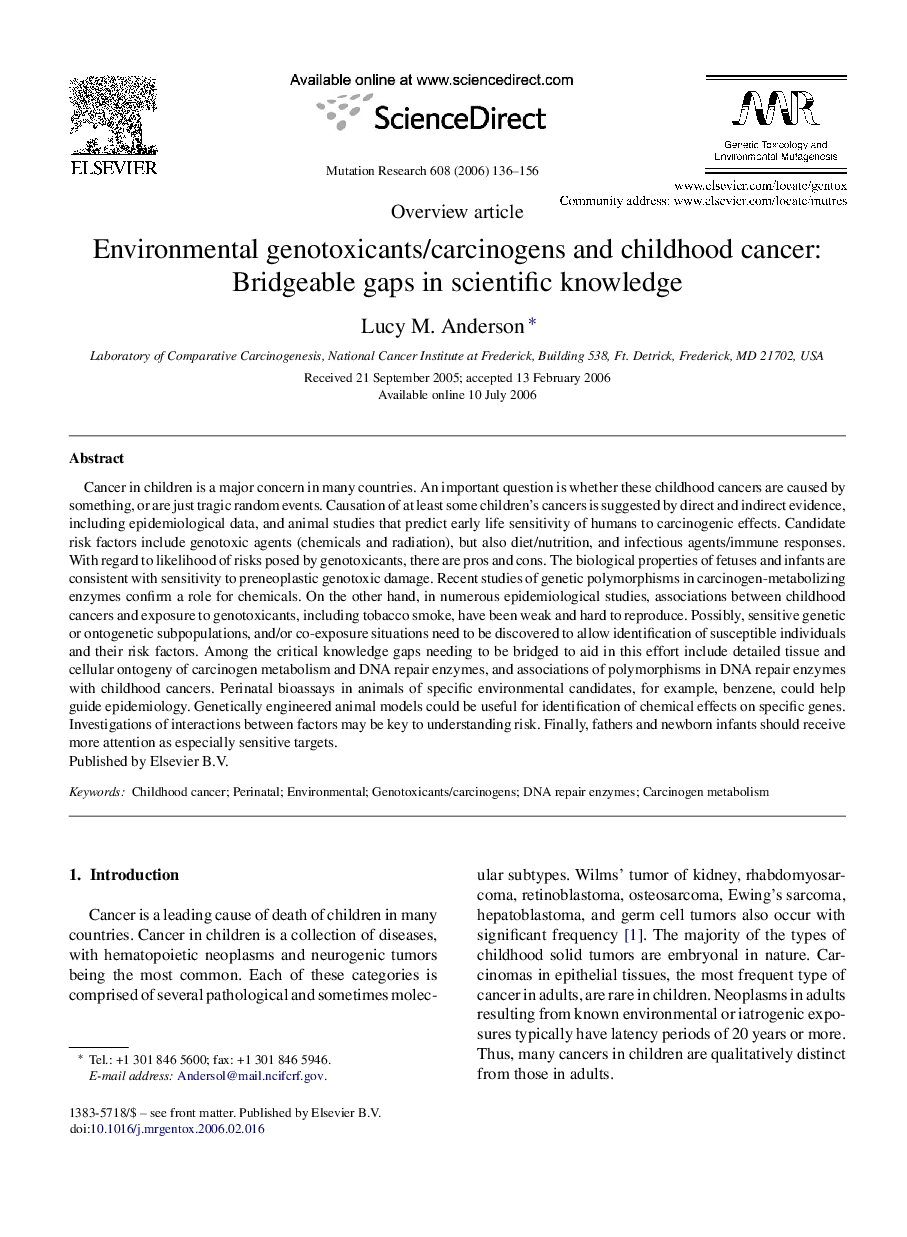| Article ID | Journal | Published Year | Pages | File Type |
|---|---|---|---|---|
| 2149453 | Mutation Research/Genetic Toxicology and Environmental Mutagenesis | 2006 | 21 Pages |
Cancer in children is a major concern in many countries. An important question is whether these childhood cancers are caused by something, or are just tragic random events. Causation of at least some children's cancers is suggested by direct and indirect evidence, including epidemiological data, and animal studies that predict early life sensitivity of humans to carcinogenic effects. Candidate risk factors include genotoxic agents (chemicals and radiation), but also diet/nutrition, and infectious agents/immune responses. With regard to likelihood of risks posed by genotoxicants, there are pros and cons. The biological properties of fetuses and infants are consistent with sensitivity to preneoplastic genotoxic damage. Recent studies of genetic polymorphisms in carcinogen-metabolizing enzymes confirm a role for chemicals. On the other hand, in numerous epidemiological studies, associations between childhood cancers and exposure to genotoxicants, including tobacco smoke, have been weak and hard to reproduce. Possibly, sensitive genetic or ontogenetic subpopulations, and/or co-exposure situations need to be discovered to allow identification of susceptible individuals and their risk factors. Among the critical knowledge gaps needing to be bridged to aid in this effort include detailed tissue and cellular ontogeny of carcinogen metabolism and DNA repair enzymes, and associations of polymorphisms in DNA repair enzymes with childhood cancers. Perinatal bioassays in animals of specific environmental candidates, for example, benzene, could help guide epidemiology. Genetically engineered animal models could be useful for identification of chemical effects on specific genes. Investigations of interactions between factors may be key to understanding risk. Finally, fathers and newborn infants should receive more attention as especially sensitive targets.
